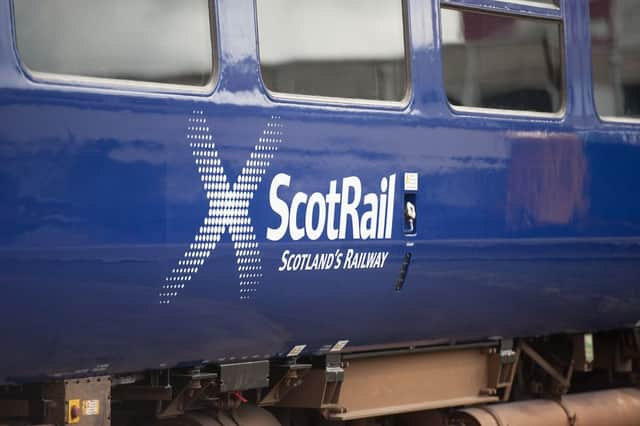30 ScotRail trains halted by cable thieves


Thousands of commuters suffered major disruption yesterday after thieves attempted to steal signalling cable in the second such incident in two weeks.
More than 30 trains across the Central Belt were cancelled and dozens delayed by a total of 25 hours after up to 800ft (250m) of cable was cut overnight at Greenhill junction, between Cumbernauld and Falkirk.
Advertisement
Hide AdAdvertisement
Hide AdThe ScotRail Alliance, which includes track owner Network Rail, said services did not return to normal until 2pm.
Trains on the main Edinburgh-Glasgow line were halved in frequency to every half hour, with 15 minutes added to journeys.
Glasgow-Dunblane line stopping services were cancelled, with delays for passengers between Glasgow and Alloa, and Aberdeen and Inverness. Services between Dalmuir in West Dunbartonshire and Cumbernauld were altered to start and terminate at Springburn. A ScotRail Alliance spokesman said: “Glasgow Queen Street services have been significantly disrupted by an attempted cable theft.
“This incident caused extensive damage to cables controlling signalling equipment on the main Edinburgh-Glasgow line. Engineers have been on site since 5:30am working to repair the damage and restore services to normal. We understand the inconvenience this has caused and have worked hard to keep as many passengers as possible on the move, utilising diversionary routes around the area where possible.”
British Transport Police said up to 300ft (100m) of copper signalling cable was also stolen between Greenhill junction and Falkirk two weeks ago. A total of 31 trains were cancelled.
Chief Inspector Stuart Wilson said: “While we have seen a decrease in the number of incidents from the high of several years ago, we are still experiencing cable thefts across the country which cause disruption and inconvenience to the travelling public as well as costing thousands of pounds to rectify.”